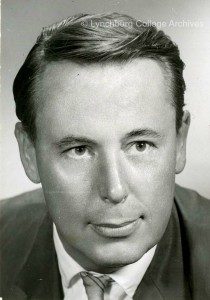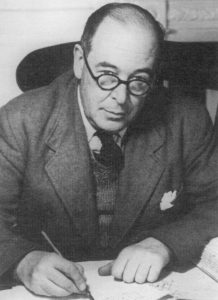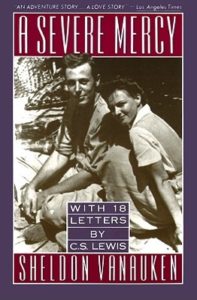 Sheldon Vanauken was an American who went to Oxford in the early 1950s to study literature. He considered himself an agnostic. Although C. S. Lewis was not one of his tutors, he happened to read Lewis’s Ransom Trilogy—Out of the Silent Planet, Perelandra, and That Hideous Strength. Sensing in Lewis someone he might approach with his religious questions, he began sending him letters.
Sheldon Vanauken was an American who went to Oxford in the early 1950s to study literature. He considered himself an agnostic. Although C. S. Lewis was not one of his tutors, he happened to read Lewis’s Ransom Trilogy—Out of the Silent Planet, Perelandra, and That Hideous Strength. Sensing in Lewis someone he might approach with his religious questions, he began sending him letters.
Explaining that he had “embarked” on a “voyage that would someday lead me to God,” he was writing to find out if Lewis, who had already “linked certainty with Christianity,” might be able to give him “a hint of how it’s to be done.”
He continued, “Having felt the aesthetic and historical appeal of Christianity, having begun to study it, I have come to awareness of the strength and ‘possibleness’ of the Christian answer. I should like to believe it. I want to know God—if he is knowable. But I cannot pray with any conviction that Someone hears. I can’t believe.”
His deepest question was how to believe, out of all the religions in the world, that just one could be true. Perhaps, he reasoned, because he lived in a “‘real world’ of red buses and nylon stockings and atomic bombs” and had never seen an angel or heard the voice of God, that it cannot be easy to connect with Him.
Why write to Lewis? “Somehow you, in this very same world, with the same data as I, are more meaningful to me than the bishops of the faithful past. You accomplished the leap from agnosticism to faith: how?”
 One might not ordinarily expect an extremely busy Oxford don to reply to a total stranger, yet Lewis saw an opportunity to aid someone’s honest quest for truth.
One might not ordinarily expect an extremely busy Oxford don to reply to a total stranger, yet Lewis saw an opportunity to aid someone’s honest quest for truth.
He began by questioning the assumption that everyone really wanted Christianity to be true. Certainly Hitler and Stalin never wished to submit to an eternal standard established by God, and most people don’t want a deity acting as judge over their actions, he asserted. They would instead, in their very heart of hearts, want to tell God to stay away from what they considered their private business.
Lewis shared that this was his own reaction early in his life, a reaction against the idea that Someone transcendent would have the right to tell him what to do.
Lewis’s thoughtful letter encouraged Vanauken to write again that same month. He wished that God would not require so much to believe; why not instead be “as clear as a sunrise or a rock or a baby’s cry?” He agreed with Lewis’s assertion that most men, not only Hitler and Stalin, “would be horrified at discovering a Master from whom nothing could be withheld. . . . Indeed, there is nothing in Christianity which is so repugnant to me as humility—the bent knee.”
 He would perhaps be willing to be humbled if he knew it meant that death was not a leap into “nothingness,” and that it would mean “Materialism was Error as well as ugliness,” and “above all, that the good and the beautiful would survive.” Lewis, in response, maintained that there could be no demonstrative proof of Christianity in the same sense as a mathematical proof. He then aimed at Vanauken’s concepts of ugliness and beauty:
He would perhaps be willing to be humbled if he knew it meant that death was not a leap into “nothingness,” and that it would mean “Materialism was Error as well as ugliness,” and “above all, that the good and the beautiful would survive.” Lewis, in response, maintained that there could be no demonstrative proof of Christianity in the same sense as a mathematical proof. He then aimed at Vanauken’s concepts of ugliness and beauty:
You say the materialist universe is “ugly.” I wonder how you discovered that! If you are really a product of a materialistic universe, how is it you don’t feel at home there?
Do fish complain of the sea for being wet? Or if they did, would that fact itself not strongly suggest that they had not always been, or wd. not always be, purely aquatic creatures?
Notice how we are perpetually surprised at Time. (“How time flies! Fancy John being grown-up & married! I can hardly believe it!”)
In heaven’s name, why? Unless, indeed, there is something in us which is not temporal.
Vanauken, through his correspondence with Lewis, became a Christian. Before he left Oxford and returned to America, he and Lewis met often face-to-face and an enduring friendship was established. “No man,” he wrote later, “ever did so much to shape my mind, quite aside from Christianity, which of course shaped my whole life. I have never loved a man more.”
